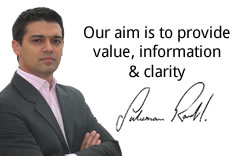Managed Funds – Incorporating investments such as investment trusts, managed trusts and unit trusts
Managed funds are a pooled investment where investors group their money to be managed by a professional investment manager for a fee. The investment manager uses this pool of money to buy shares, property, cash, fixed interest and property to try and achieve the best return.
Investors buying into a managed fund typically purchase units based on the amount they wish to invest and the unit price on that particular day. For example, an investment of $20,000 at a price of $1.00 per unit will acquire 20,000 units in the fund (minus any initial fee the manager charges).
Managed funds are one of the easiest ways to achieve a balanced spread of investments managed by a professional
Since managed funds pool your investments along with thousands of other investors, it is one of the quickest and easiest ways to invest your money without putting all your eggs in one basket.
Many investors looking to achieve higher long term returns have typically looked to stocks and shares. However, unless you have already built up a relatively large portfolio the danger to your investment returns are:
1. Your spread of investments will be limited – Managed funds pool investors’ money together, allowing them to spread the risk of an individual stock plummeting by investing in 50-150 different stocks.
2. Economies of scale dictate your investment costs are likely to be high – Due to the large volume of trades fund managers are able to negotiate relatively large discounts on the costs of buying and selling. For example, they may be able to trade for as little as 0.05% or less, whereas stockbrokers typically charge you 0.20%-0.5% per trade with a minimum of $25-$50. That doesn’t sound much, but when you’re only buying and selling $1000 of shares that’s 2.5%-5% to buy and 2.5%-5% to sell. i.e. you’re 5%-10% down on each share before you start.
3. Investing your own money is an emotional experience – Investing your own money is always going to be an emotional experience, after all, you earned it, you made the investment decisions. The problem for most investors lies in when the market takes a tumble or suddenly increases in value. It’s human nature to feel that you have missed out when there’s a sudden surge in the price of share you recently read about. It’s also perfectly natural for you to feel you should hold onto a share that halved after you just bet the house on it, after all you haven’t lost anything until you’ve sold it. Sound familiar? This is gambling 101.
It may sound simple but buying or selling shares with your own money, based on investment principles alone, is a lot harder than it sounds.
It’s much easier to make the right decisions when you have the backing of an investment team helping you make them
Professional managers are experts in making investment decisions and are backed by a whole host of investment tools and a team of analysts helping to source the latest news and information on current and prospective investments. It’s a lot easier to make informed decisions when you’ve a team of professionals working just to help you make the right decisions.
Portfolio management and strategy
Since investor’s attitude to risk can vary, investment managers set out their investment strategy/objectives at outset, allowing you to pick and choose investments to fit in with your level of risk, or even a specific sector you wish to invest into. For example, you may have a preference for low risk fixed interest, medium risk Australian equities, or even a high risk investment in Chinese technology start-ups.
Every fund has an investment objective (strategy) to help you understand how the manager intends to make investments; this is highlighted in the prospectus/PDS, although the name of the fund is usually a dead giveaway (e.g. Australian smaller companies fund etc).
It is the investment manager’s role to achieve the best possible returns whilst following their investment strategy. It’s also important to note that the manager cannot invest outside of their investment strategy, ie a fund investing in US stocks and shares cannot invest in Australian shares if it is felt that the Australian market will outperform the US market.
How do managed funds increase in value?
By investing over the medium to long term, investors generally expect a greater return than interest in the bank. Growth comes from a number of sources and depends on the overall investment objectives of the particular fund:
- Fixed interest is typically made up of fixed interest and bond investments, therefore, returns are typically interest, capital gains on bonds and some dividends
- Returns in equity funds (ie investing in shares) are mainly made up of capital growth and some dividends
- Returns on property is typically made up of rent and management fees, as well as capital gains on the sale of property held
Income and capital gains are distributed equally to all investors. The income is typically either paid out as a distribution, or increases the value of the units you hold. Some funds even allow you to automatically purchase additional units with the income.
(Tip: Watch out for companies charging you up to 5% on automatic reinvestments even though you may have set up your fund with no initial fees)
